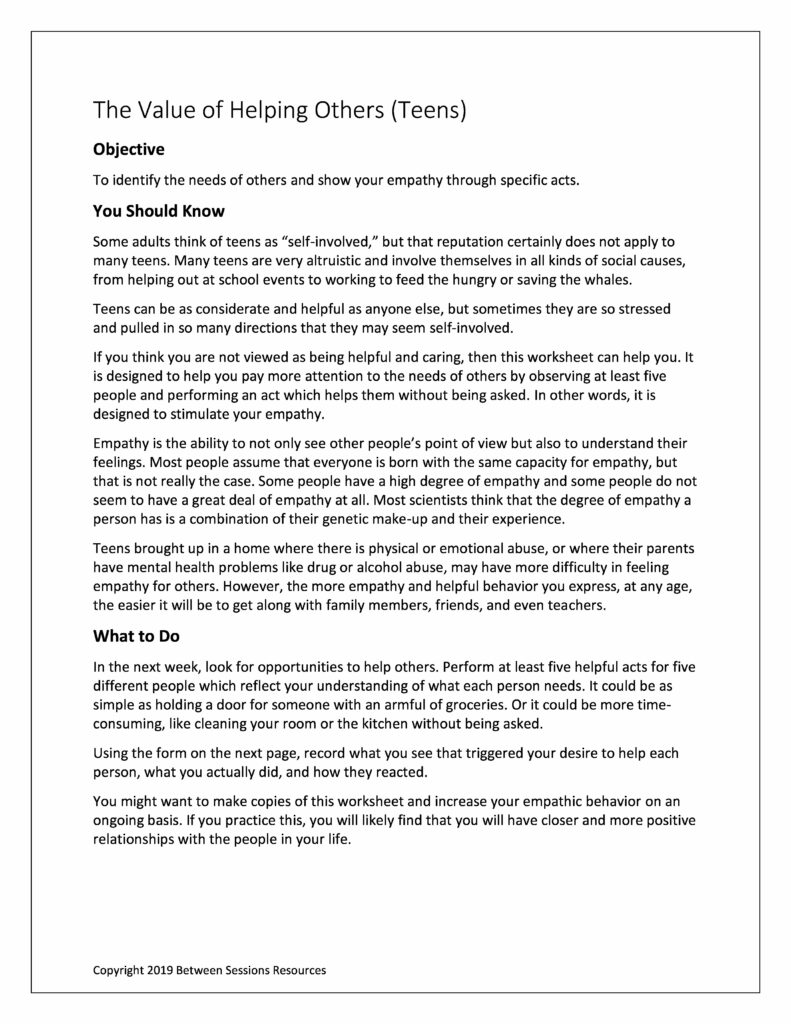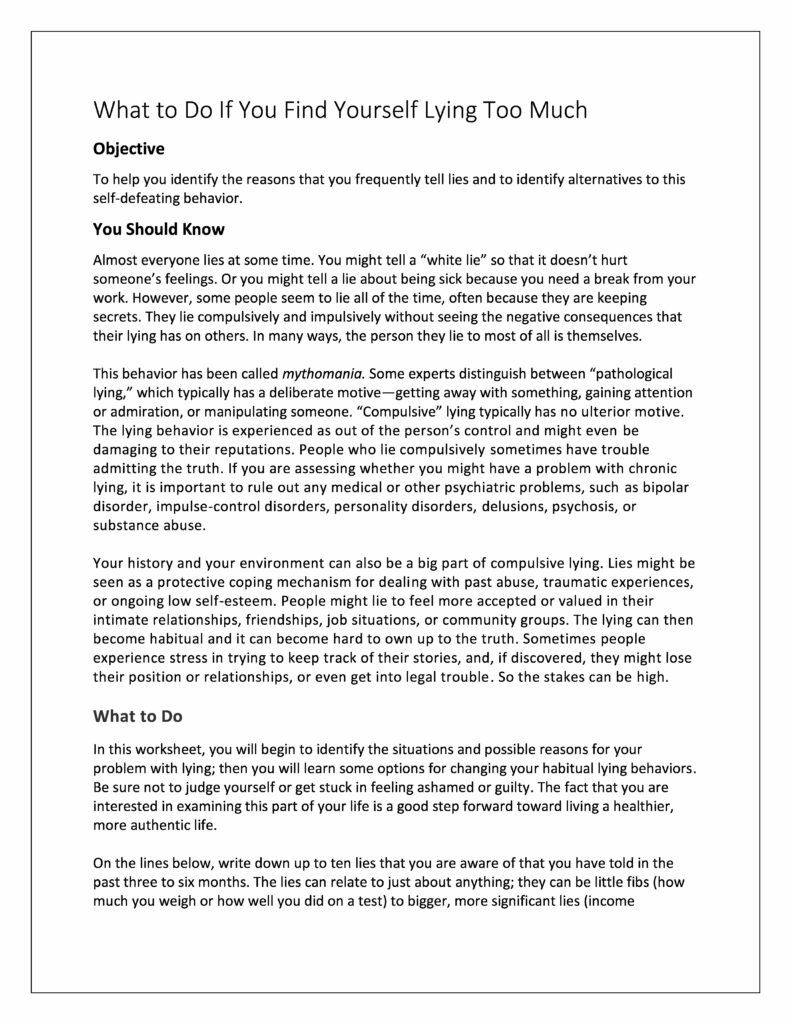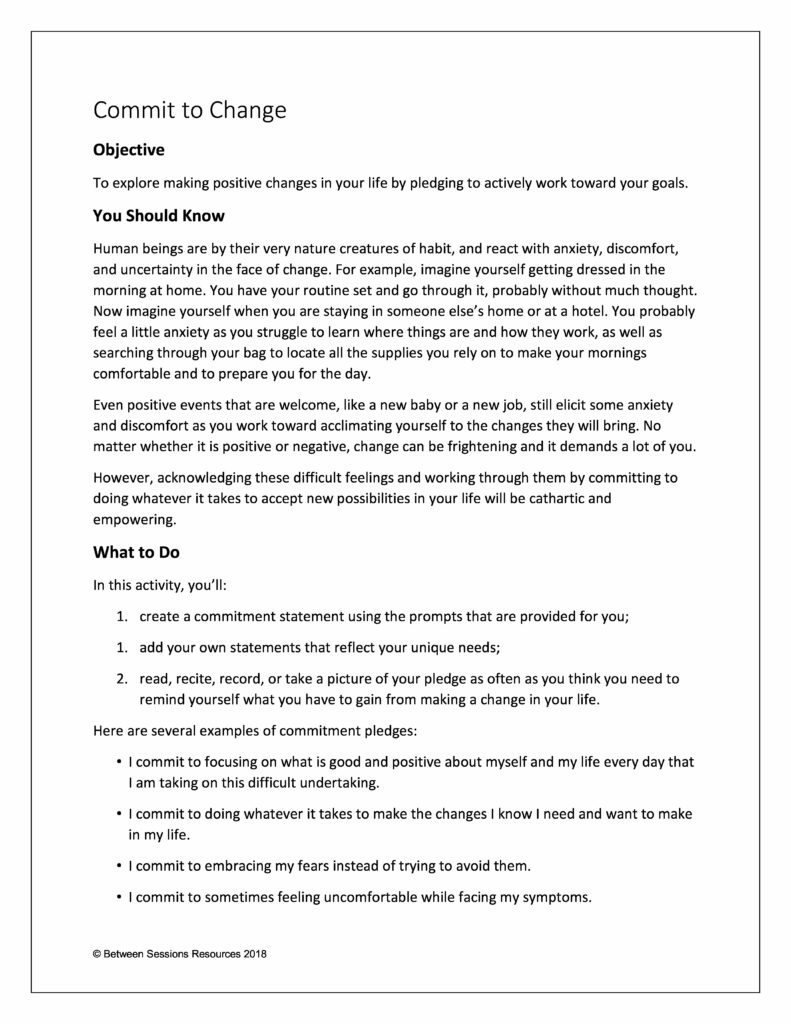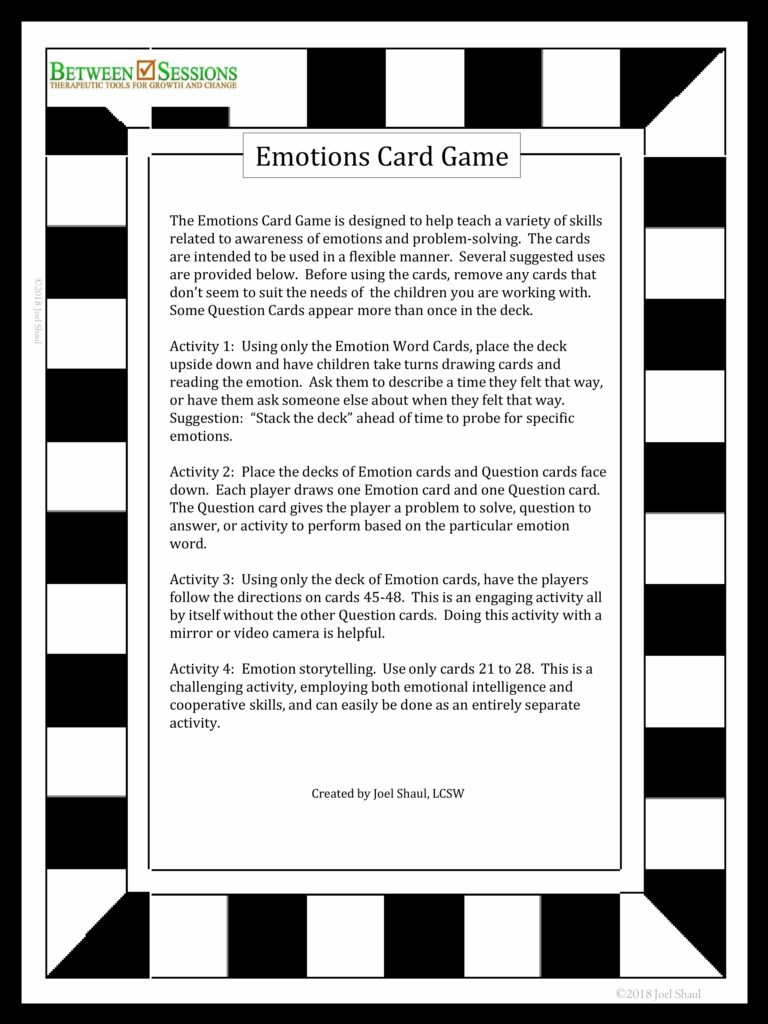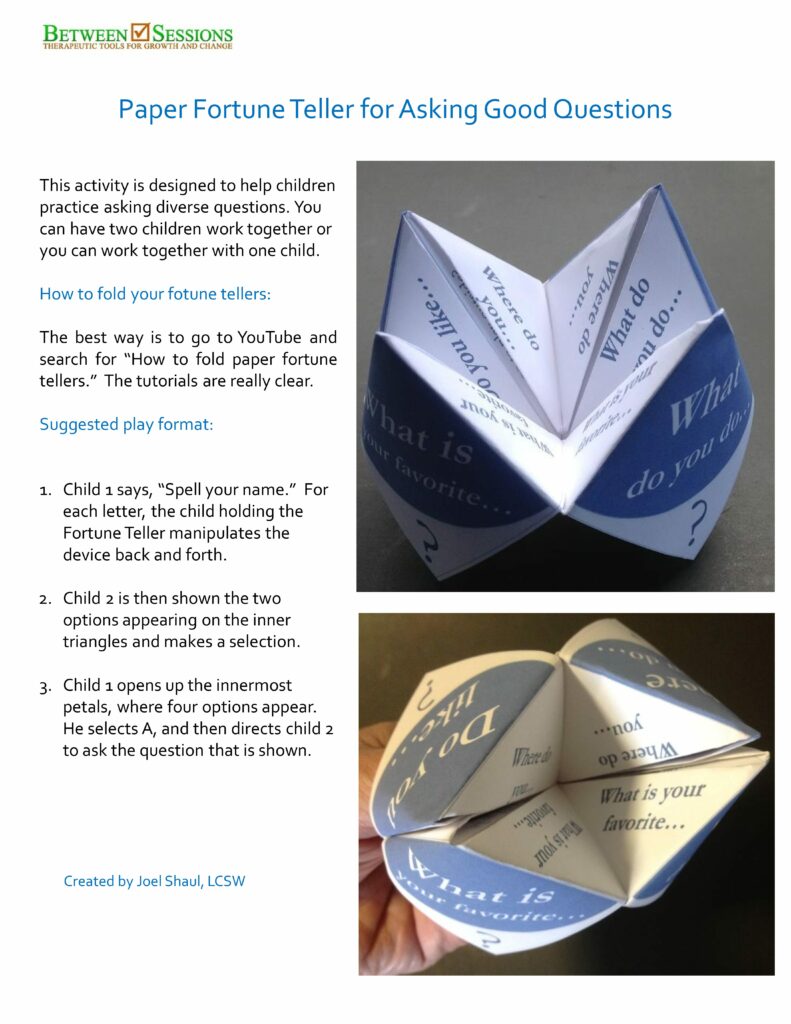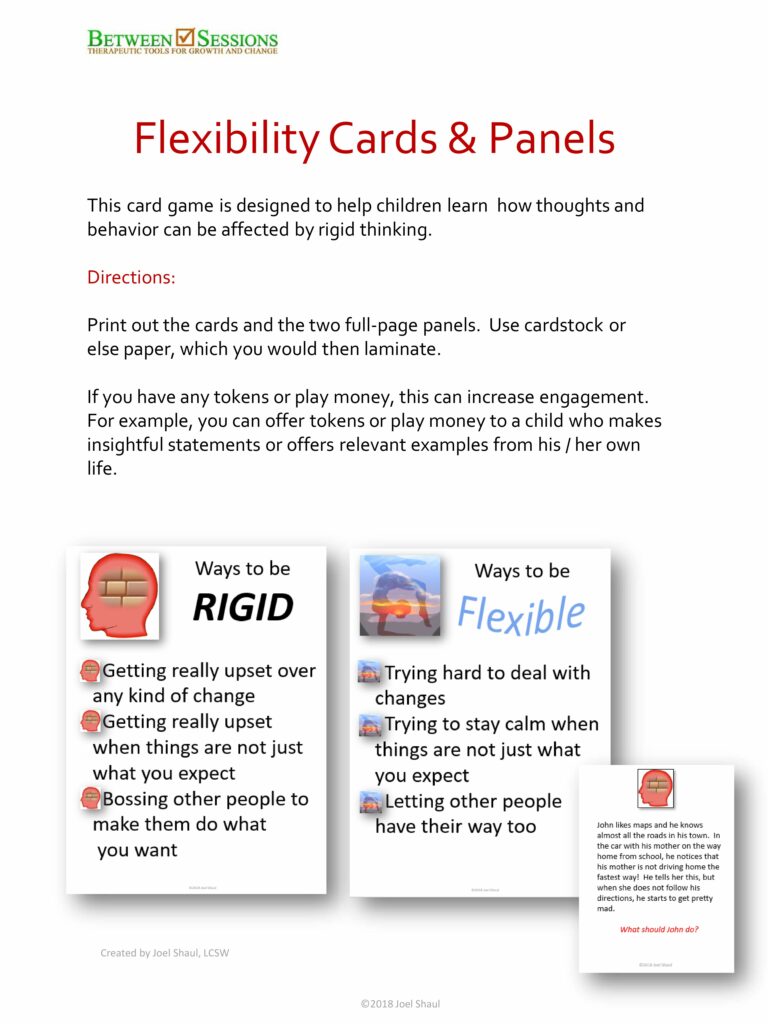These cards remind people to think about others and look for opportunities for random acts of kindness. (empathy, social connection, 0819)
This worksheet is designed to help teens see the importance of empathetic acts. (behavior issues, Oppositional Defiant Disorder, empathy, 0719)
This worksheet is designed for people who lie frequently and who wish to find a positive alternative to this behavior. (addiction, 0319)
This worksheet is designed to help people determine if hair-pulling is a serious problem. The worksheet also teaches a behavioral technique commonly used to treat this problem. (anxiety, trichotillomania, habits, 0219)
This worksheet asks people to explore making positive changes in their lives by pledging to actively work toward their goals. People are asked to create a commitment statement using provided prompts, and then add statements that reflect their own unique needs. They then turn these statements into a commitment pledge.
This worksheet is designed to help people get control over the compulsive behavior that they normally use to decrease their anxiety. It asks them to slowly reduce the time that they spent on their compulsive behaviors reinforcing the sense that they have control of their compulsions if they choose to exert it. (compulsions, OCD, 1218)
The Emotions Card Game is designed to help teach a variety of skills to children and teens related to awareness of emotions and problem-solving. The cards are intended to be used in a flexible manner. The instructions describe four different games than can be played. 27 pages (1118, emotional intelligence)
This worksheet is designed to help people with social anxiety overcome their self-consciousness in social situations. It is designed to help people pay attention to what is happening around them rather than just on their inner experiences. (social anxiety, shyness, self-esteem, 1118)
This worksheet shows people how to cut out and fold a Fortune Teller, which is designed to help kids talk about themselves, their likes and dislikes, and more.
This activity for kids and teens teaches the importance of flexible social thinking. It includes two “poster” handouts to open a discussion on flexible thinking and a simple card game to practice new skills. (Asperger Syndrome, social intelligence, autism, ADHD, 1018)


